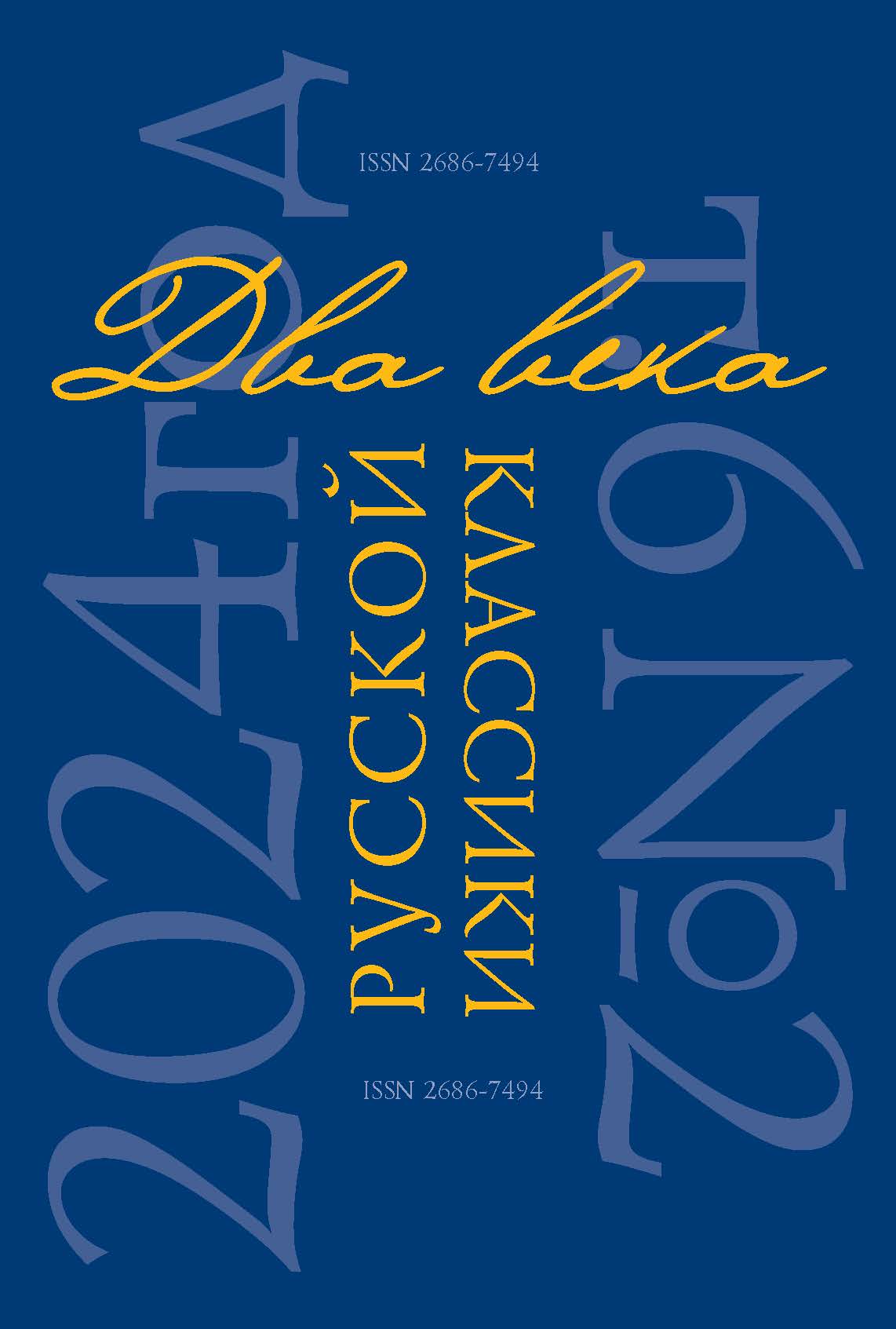Acknowledgments:
The study was supported by the Russian Foundation for Basic Research (RFBR), number 20-012-00084.
Abstract:
Ostrovsky’s translations of the works of Plautus, Terence, and Seneca, preserved in incomplete drafts, attend to the textual criticism related both to the principles of the work and to its aims. The example of the translation of Terence’s Hecyra in comparison with the earlier translation of Plautus’ Asinaria proves the evolution of Ostrovsky’s translation principles. While Plautus was translated without recourse to an intermediary translation, Terence was translated from the popular bilingual edition, and the translator turned to a French translation in difficult cases. The article explains how Ostrovsky worked further with passages translated from the French or with reference to the French text, in which cases, on the contrary, he translated from the Latin without reference to the French translation, and this course of initial work determined the order of further editing of the rough translation. The self-editing went in the direction of both greater accuracy and expressiveness, which in the case of using an intermediary translation proved to be a clearly contradictory task. Reconstructing the history of the text in light of the identified source of the translation allows us to clarify a number of manuscript readings, to identify the pencil edits as belonging highly likely to Ostrovsky himself, contrary to the opinion of the first publisher of the translation, and to raise the issue of the stage intention of the translation.
References
Zubkov, K. Iu. Stsenarii peremen: Uvarovskaia nagrada i evoliutsiia russkoi dramaturgii v epokhu Aleksandra II [Scenarios of Change: the Uvarov Prize and the Evolution of Russian Drama in the Era of Alexander II]. Moscow, Novoe literaturnoe obozrenie Publ., 2021. 608 p. (In Russ.)
Lakshin, V. Ia. A. N. Ostrovskii [Ostrovsky]. Moscow, Geleos Publ., 2004. 768 p. (In Russ.)
Malein, A. I. “Terentsii. Getsira, komediia s perevodom i primechaniiami A. I. Maleina” [“Terence. Hecyra, a comedy with translation and notes by A. I. Malein”].
Pamiati A. N. Ostrovskogo: Sbornik Statei ob Ostrovskom i Neizdannye Trudy ego [In Memory of A. N. Ostrovsky: Collection of Articles about Ostrovsky and His Unpublished Works]. Petrograd, Put’ k znaniiu Publ., 1923, pp. 186–215. (In Russ.)
Filippov, V. V. “Komediia Terentsiia Hecyra v perevode A. N. Ostrovskogo” [“Terence’s Hecyra comedy translated by A. N. Ostrovsky”]. Indoevropeiskoe iazykoznanie i klassicheskaia filologiia [Indo-European Linguistics and Classical Philology]. St. Petersburg, Nauka Publ., 2009, pp. 526–531. (In Russ.)
Chesnokova, T. G. “Usmirenie svoenravnoi A. N. Ostrovskogo: problemy retseptsii i printsipy perevoda shekspirovskoi komedii” [“The Taming of the Shrew by A.N. Ostrovsky: Some Aspects of Reception and the Principles of Translation of Shakespeare’s Comedy”]. Studia Litterarum, vol. 5, no. 4, 2020, pp. 10–37. https://doi.org/10.22455/2500-4247-2020-5-4-10-37 (In Russ.)









